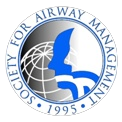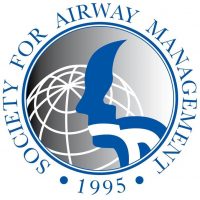https://www.samhq.com

View attendance policy in effect for our courses: Click here
Upcoming Dates and Locations
Course Fees:
Cancellation Policy
A Cancellation Fee of 10% of the tuition paid will apply to all course cancellations requested up to 14 days prior to start of Course.
No refunds will be issued for cancellations requested within 14 days of the course start date.
No refunds will be granted to those who do not attend the Course without having made prior arrangements for cancellation or transfer.
If a registrant tests positive for COVID or another communicable disease, they may cancel their registration up to the start of the course. A 10% cancellation fee will be assessed. Proof of positive test will be required to initiate refund.
Alternatively, registrants may transfer to another course with no transfer or cancellation fee.
A credit for a future course will be offered to any attendee who leaves during the Course because of COVID-19 symptoms or positive test.
If Airway Management Education Center (AMEC) is required to cancel a course due to safety concerns, all attendees will receive a 100% refund or may transfer to another course.
So happy the course happened live! Even with COVID precautions the hands-on sessions were great and faculty was so helpful!
This course is a vital part of my anesthetic practice. After over 20 years of experience, I appreciate the content and hands-on skills stations to refine my practice. I always come out of this course a better clinician and will continue to attend as long as I am practice. Best conference I have ever attended hands down!
This is singularly the best CME course I have been to in my 25 years in practice! I believe this should become the ACLS for Airway and a requirement for all anesthesia residents to graduate their training program. Thank you!!
This was my third time in 10 years attending the course. I learn something new each time!
This is hands down the best CME event I’ve done in my 35 years as an anesthesiologist. Keep up the splendid work!
Highlights include:
Thousands of physicians world-wide come to our course for intensive training in the most critical elements of difficult airway management. Highlights include:
- Instruction by a world-class faculty of airway experts with an unparalleled passion for teaching.
- Content, techniques and “pearls” that benefit even the most experienced providers.
- Hands-on sessions featuring challenging Code Airway™ stations.
- Focus on difficult airway management, difficult extubation, failed airway management and crisis team leadership.
- Dynamic and interactive learning environment.
- Up-to-date evidence
Hands-on Training in Crucial Airway Techniques
- Awake Intubation — When & How
- Topical Anesthesia
- Open Cricothyrotomy
- Extubation and Tube Exchange
- Crisis Team Leadership
- Video Laryngoscopy
- Flexible Endoscopic Intubation
- Lighted and Fiberoptic Intubating Stylets and Guides
- Techniques for the Obese Patient
- Simulation Case Reinforcing Cognitive Information
| Lung Separation Workshop Optional Pre-Course Workshop |
Enrollment is limited, so please apply early. |
ENDORSED BY:

Accreditation
The Difficult Airway Course: Anesthesia
SCP Health designates this live activity for a maximum of 18.5 AMA PRA Category 1 Credits. Physicians should claim only the credit commensurate with the extent of their participation in the activity.
Lung Separation Workshop
SCP Health designates this live activity for a maximum of 3.75 AMA PRA Category 1 Credits. Physicians should claim only the credit commensurate with the extent of their participation in the activity.
The Difficult Airway Course: Anesthesia
This program has been prior approved by the American Association of Nurse Anesthesiology for 18.50 Class A CE credits; Code Number 1045068; Expiration Date 9/21/2025.
Lung Separation Workshop
This program has been prior approved by the American Association of Nurse Anesthesiology for 3.75 Class A CE credits; Code Number 1045069; Expiration Date 9//21/2025.
Participants in the ANZCA and FPM CPD program may claim this workshop as a CICO emergency response activity in their CPD portfolio.
Recognition code: ER-24-CICO-011
Emergency Response Activity: CICO
Recognition Expiration Date: 30 June 2027
Schedule Download PDF
2025 Typical Course Schedule (final schedule distributed on-site)
Day 1
Lung Separation Workshop (optional/pre-registration required)
6:15-7:30 am
Optional Workshop Registration/Continental Breakfast (for workshop participants only)
7:30-8:00 am
Introduction to Lung Separation
8:00-11:15 am
Left-sided DLT placement, confirmation and troubleshooting.
Right-sided DLT placement, confirmation and troubleshooting.
Placement of Bronchial Blockers
11:15-11:45 am
Lunch (Provided for Lung Separation Workshop participants only)
The Difficult Airway Course: Anesthesia
11:00 – 11:45 am
Registration
11:45 - 12:25 pm
Course Introduction: Welcome
Cornerstone: Managing the Difficult Airway
12:25 - 1:10 pm
Difficult Airway Identification and Planning
1:10 - 1:30 pm
Airway Anatomy: Nasal Endoscopy Self-Scope and Airway Ultrasound
1:30 - 1:45 pm
Break/Exhibits
1:45 - 2:15 pm
Awake Tracheal Intubation
2:15 - 2:45 pm
Difficult Airway in Pediatric Patients
2:45 - 3:05 pm
Break/Exhibits
3:05 - 6:05 pm
Breakout Sessions:
Case Discussion: Anticipated Difficult Airway - Obstructing Pathology
Case Discussion: Anticipated Difficult Airway - Non-Obstructing Pathology
Skills Workshop: Awake Tracheal Intubation
Day 2
6:30 - 7:30 am
Registration/Breakfast
Cornerstone: Managing the Failed Airway
7:30-8:00 am
Difficult Airway in the Induced Patient
8:00 - 8:30 am
Cannot Intubate / Cannot Ventilate
8:30 - 8:45 am
Break/Exhibits
8:45 am – 10:15 pm
Breakout Sessiosn:
Case Discussion: Difficult Airway in the Induced Patient
Skills Workshop: Surgical Airway
Skills Workshop: Management of the Failed Airway
10:15 - 10:30 am
Break
10:30am - 12:00pm
Breakout Sessions:
Case Discussion: Difficult Airway in the Induced Patient
Skills Workshop: Surgical Airway
Skills Workshop: Management of the Failed Airway
12:00 – 12:45 pm
Panel Lunch (provided)
12:45 - 1:45 pm
Human Factors in an Airway Crisis
1:45 - 3:30 pm
Code Airway™ Simulations
3:30 - 3:45 pm
Break/Exhibits
3:45 - 5:00 pm
Code Airway™ Simulations
Day 3
Cornerstone: Endotracheal Tube Exchange & Extubation of the Difficult Airway
6:30-7:30 am
Registration/Continental Breakfast
7:30-8:30 am
Extubation and Airway Exchange Catheters
8:30-10:30 am
Rotate Sessions:
Case Discussions: Intra-Op Airway Issues, Tracheostomy Issues and Extubation Issues
Skills Workshop: Airway Exchange Catheters & Additional Flexible Endoscopy Practice
10:30-11:30 am
Interactive Exam, Review and Final Wrap-up
Purpose & Objectives
Target Audience
Anesthesiologists, Nurse Anesthetists and Anesthesiologist Assistants.
Endorsed by:

https://www.samhq.com
